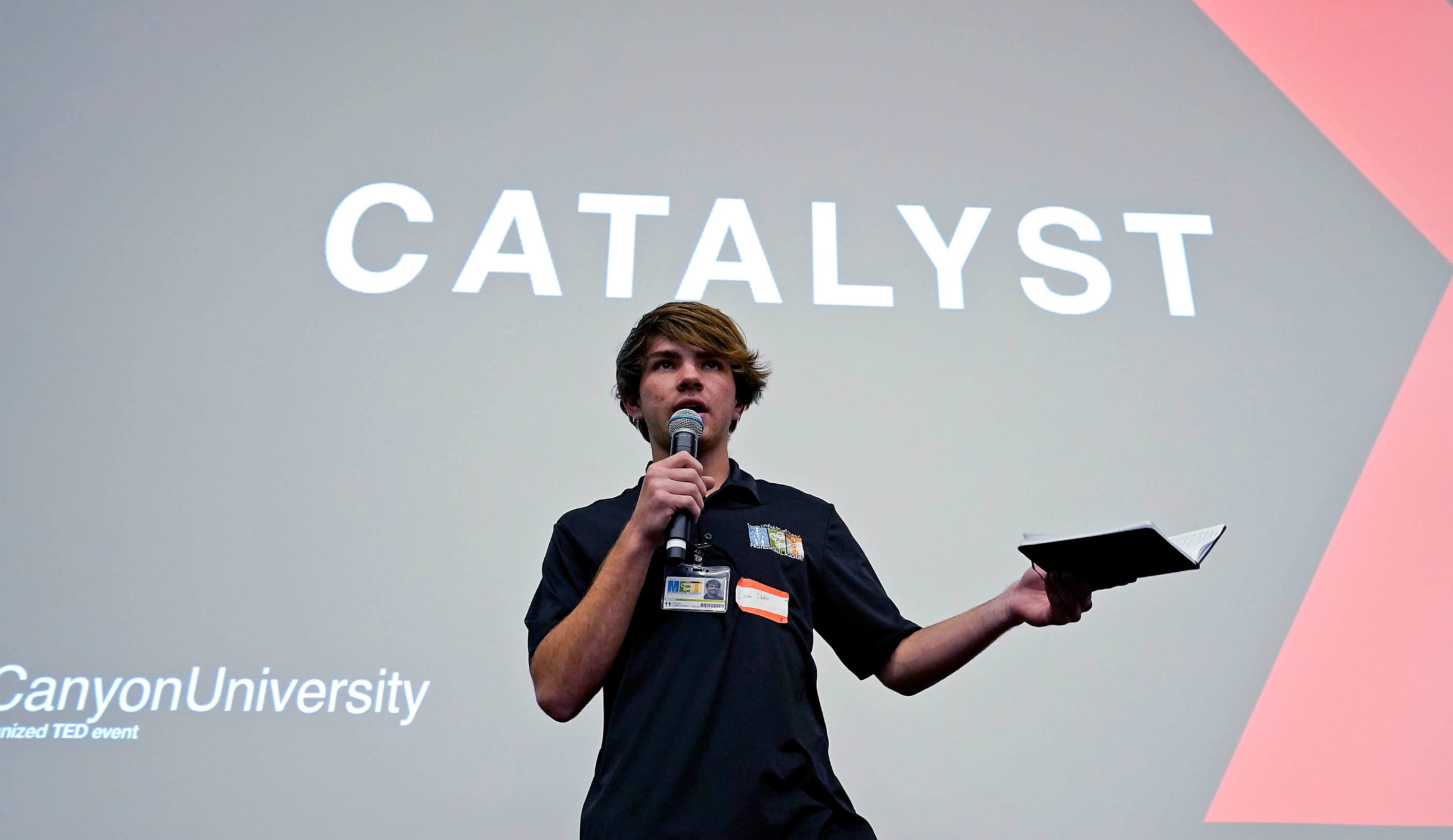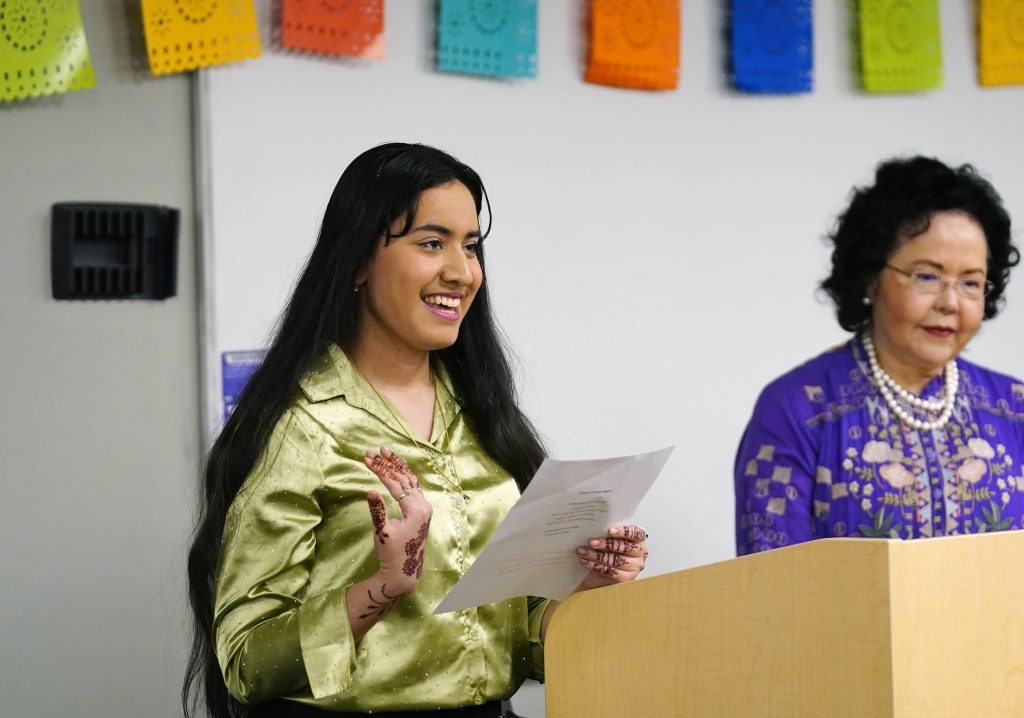
Photos by Ralph Freso
When Esveidy Rodriguez Melendez lost her grandmother in 2020, she began to write poems in her grief.
“It was a mental health reliever,” said the sophomore at Grand Canyon University. “It was the way I was able to process and accept her death.
“I just kept doing it as a way to express myself.”
The justice studies major was one of six winners announced Friday at Juegos Florales, the Spanish program’s second annual poetry and literature contest.
The writing is all in Spanish, as was Friday’s presentation.
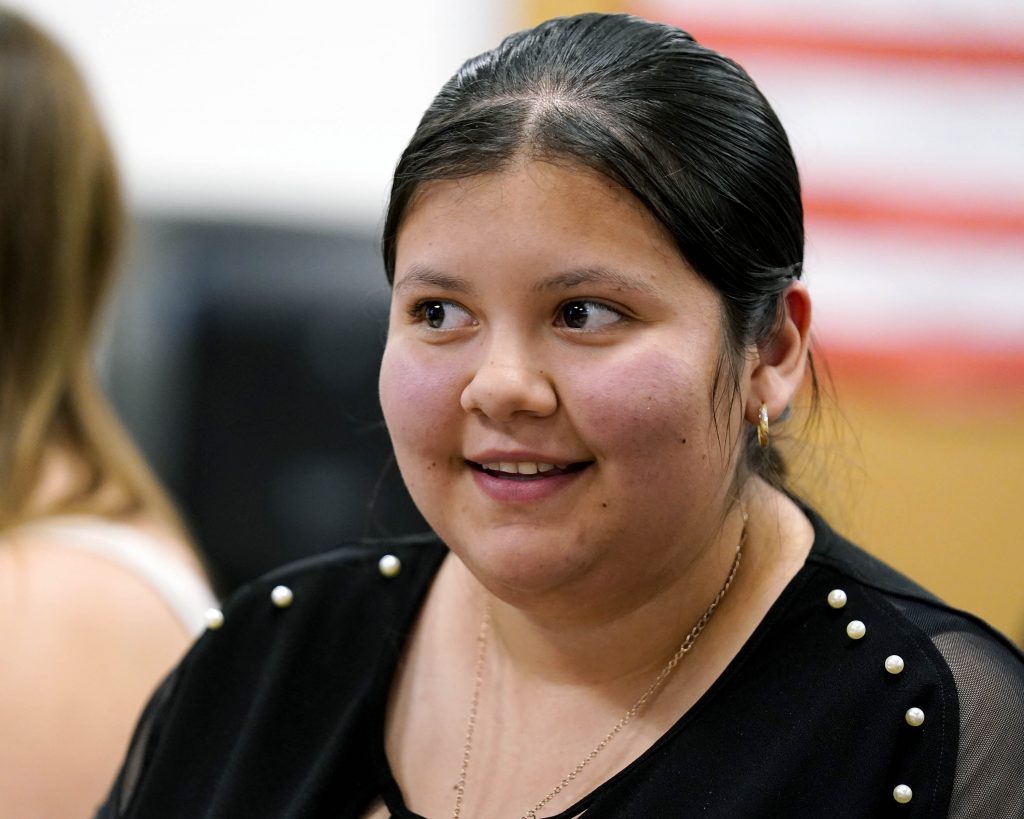
Melendez, who is pursuing a Spanish minor, described her poem:
“It’s about the struggle that immigrants go through while pursuing the American dream and how you are trying for a brighter future, but you have to suffer the goodbye of your loved ones.”
A smell or song can immediately recall the days of hardship.
“They are not alone,” she said.
“I am a Dreamer myself. I relate to it. Any song that reminds me of this reminds me of millions of people. Sometimes we don’t see the sacrifices they are making, but they are out there.”
Her own father, who buries pipe for a living after moving from Mexico to the U.S. 18 years ago, also is a songwriter, Melendez said.
“Maybe that’s where I get it from,” she said. “We like expressing ourselves and describing our sacrifices and the hardships we go though to be able to have a brighter future.”
Dr. Mark Spalding and Mariela Forrest, the Spanish faculty in the College of Humanities and Social Sciences, along with adjunct professor Dr. Bel Winemiller, launched the idea of Juegos Florales, which has a long history.
“It started way back with the Romans and was popular in France at universities and the idea spread, especially to Spanish-speaking countries. It's most popular now in Latin America,” Spalding said.
“The idea was to show adeptness at using language, creativity, and depth of meaning in poetry and in short stories. In those days, there was no television, no movies, and so people were fascinated by writing in ways they aren’t now. People don’t sit around and read. They watch TV right?”
“But this tradition carries on. Literature is not dead yet, it’s not.”

There were 41 entries for the cash prize in the McGraw Hill-sponsored event, which utilized an outside judge.
“The ones that impressed me always had something personal to say. They weren’t general poems about love, and we don’t know who is involved. You always knew this was from the heart and this was something very personal.”
It was deeply personal for Daniel Duong, an international student from Vietnam and another winner for his poetry.
“It’s about my internal battle with me and God. I bring those issues to God. I’m at sunrise with my struggle, my battle,” he said.
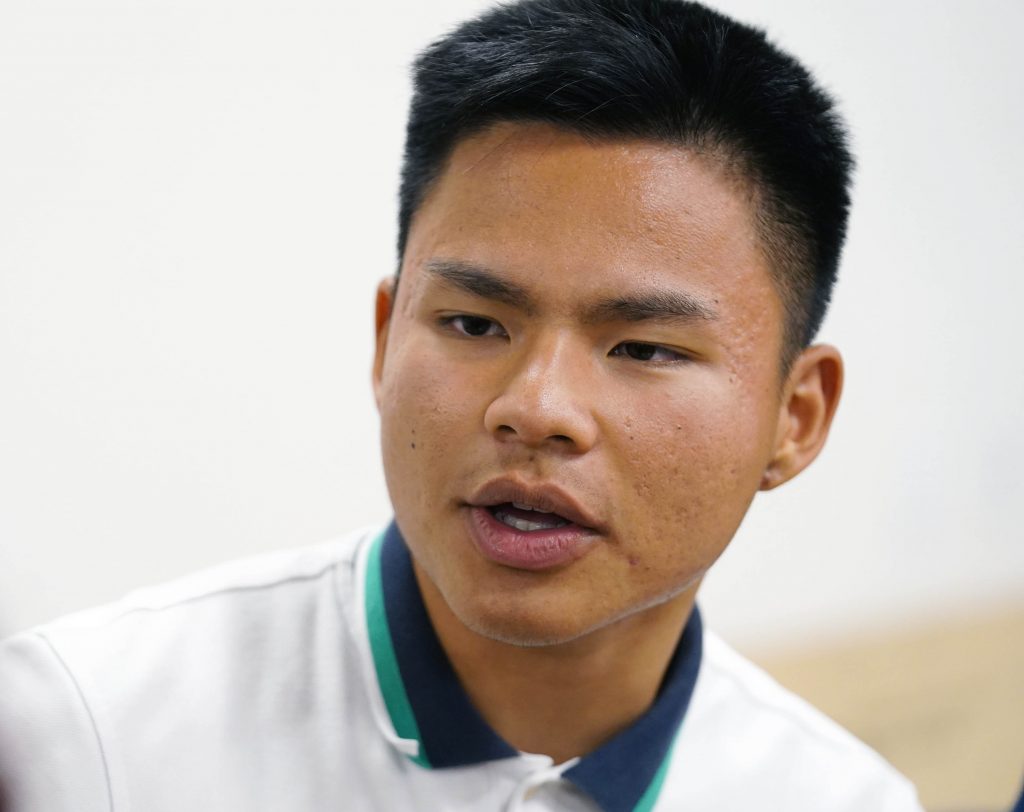
He was attempting to tap into the raw emotion of the moment and let it flow out and find some way to express what occurred in his life.
“Trust that God has your life under control and has a plan for you, instead of rebelling and disobeying, which is human nature.”
He is a business analytics major whose mother tongue is Vietnamese.
That’s one of the goals of the contest, inviting students from all areas of study to celebrate literature and the Spanish language.
“It encourages people outside the Spanish department to write in Spanish,” said Spalding.
“This contributes to diversity. Because of this neighborhood and because of this state, the heritage speakers are many,” he added. “This supports them, just having it here, even if they are not in the program, just knowing that Spanish is valued, their culture is valued.”
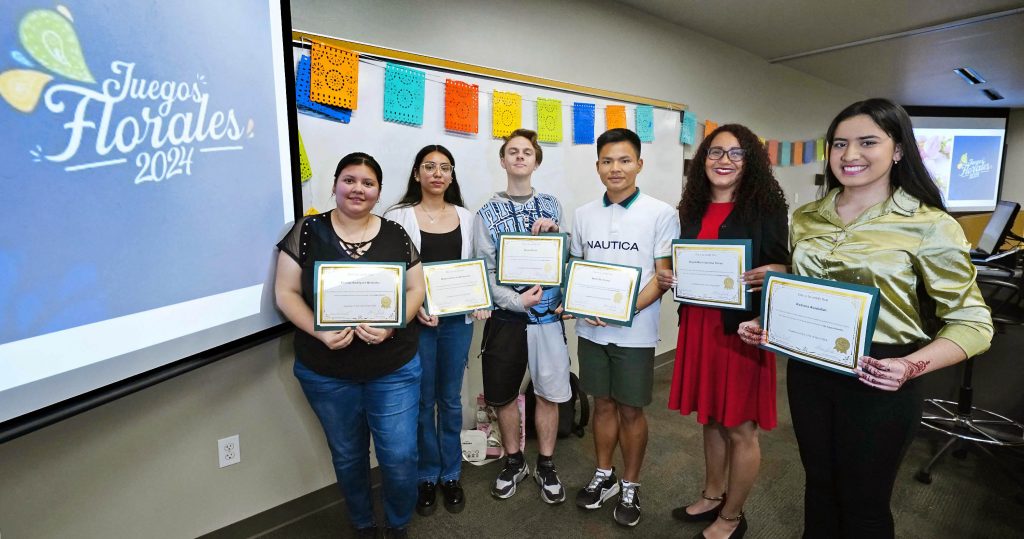
Grand Canyon University senior writer Mike Kilen can be reached at [email protected]
***
Related content:
GCU News: Culture Fest lends global perspective to Global Credit Union Arena
GCU News: Honors students use their medical skills to serve communities in Mexico





































